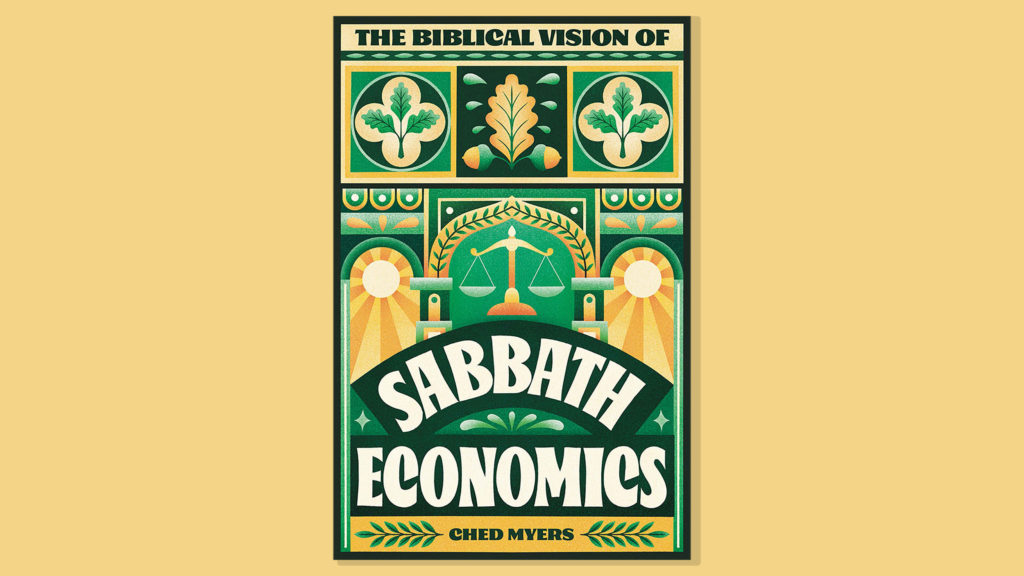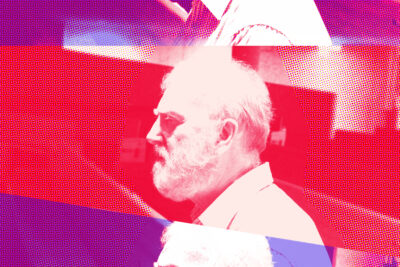We read the gospel as if we had no money (an extract from ‘Sabbath Economics’)

The following is an extract from ‘The Biblical Vision of Sabbath Economics’, newly available in print and ebook formats via our partner imprint, Lab/ora Press.
“We read the Gospel as if we had no money,” laments Jesuit theologian John Haughey, “and we spend our money as if we know nothing of the Gospel.” Indeed, the topic of economics is exceedingly difficult to talk about in most First World churches; more taboo than politics, or even sex. Yet no aspect of our individual and corporate lives is more determinative of our welfare; and few subjects are more frequently addressed in our scriptures.
The standard of economic and social justice is woven into the warp and weft of the Bible. Pull this strand and the whole fabric unravels. At the heart of this witness is the call to observe what this book outlines as ‘Sabbath Economics’. At its root, Sabbath observance is about gift and limits: the grace of receiving that which the Creator gives, and the responsibility not to take too much, nor to mistake the gift for a possession.
The economic implications of this tradition as it is articulated in the Bible can be summarized in three axioms:
1. The world as created by God is abundant, with enough for everyone—provided that human communities restrain their appetites and live within limits;
2. Disparities in wealth and power are not ‘natural’, but the result of human sin, and must be mitigated within the community of faith through the regular practice of redistribution;
3. The prophetic message calls people to the practice of such redistribution, and is thus characterized as “good news” to the poor.
The theology of Sabbath economics, with its ethic of regular, systemic redistribution of wealth and power, is most clearly summed up in the Jubilee release of slaves, the deconstruction of debt and the return of foreclosed land. It is neither utopian, nor abstract. It arose out of the concrete Hebrew experience of slavery in Egypt, and so is both corrective and preventative. I believe it continues to offer communities of faith today a way out of our historical and persistent slavery to the Debt system—with its alienating, cruel practices of social stratification and the concentration of wealth and power, which are borne out of the competing theology of meritocracy.
Our churches may be the last places left in our culture that can engage the public conversation with non-market values. Indeed, the subversive memory of Jubilee justice has kept erupting throughout church history. It animated early monks, medieval communitarians and radical Reformers. Even with the ascendancy of modern capitalism—with its fierce antipathy toward Sabbath economics—this vision has not been extinguished.
These are hard times for those trying to resist the triumphant march of a global capitalism that leaves in its wake ever-increasing disparities between rich and poor. It is a struggle to find an alternative language and practice to the manic claims and absolutist grip of market thinking. That means this is a good time for the church to rediscover the radically different vision of economic and social practice that lies right at the heart of her scriptures. The Bible recognizes that inequalities will inevitably arise in ‘fallen’ society—a realism it shares with the worldview of modern capitalism. Unlike the social Darwinism of the latter, however, the biblical vision refuses to stipulate that injustice is therefore a permanent condition. Instead, God’s people are instructed to dismantle, on a regular basis, the fundamental patterns and structures of stratified wealth and power, so that there is enough for everyone.
The Biblical Vision of Sabbath Economics is available now from the bookstores below (and elsewhere):
Paperback: Waterstones | Blackwells | Foyles
eBook: Kindle Store (others coming soon)
Related Stories

Inner State: Passionist Life in North Belfast
North Belfast is a community that has seen immense trauma over the past century – defined by political forces beyond its control.
May 30 2024

To Illumine the Mind: the Catholic diaspora in Paris
In Paris, Martin Coffey leads a church overflowing with working class immigrants. The picture of religion in France, he tells us, is not what you think.
Mar 01 2024

Positive Faith present a World Aids Day service, ‘The Reason for Hope’
Reflections, music and scripture as well as opportunities for sharing on this World Aids Day online service.
Dec 01 2023
